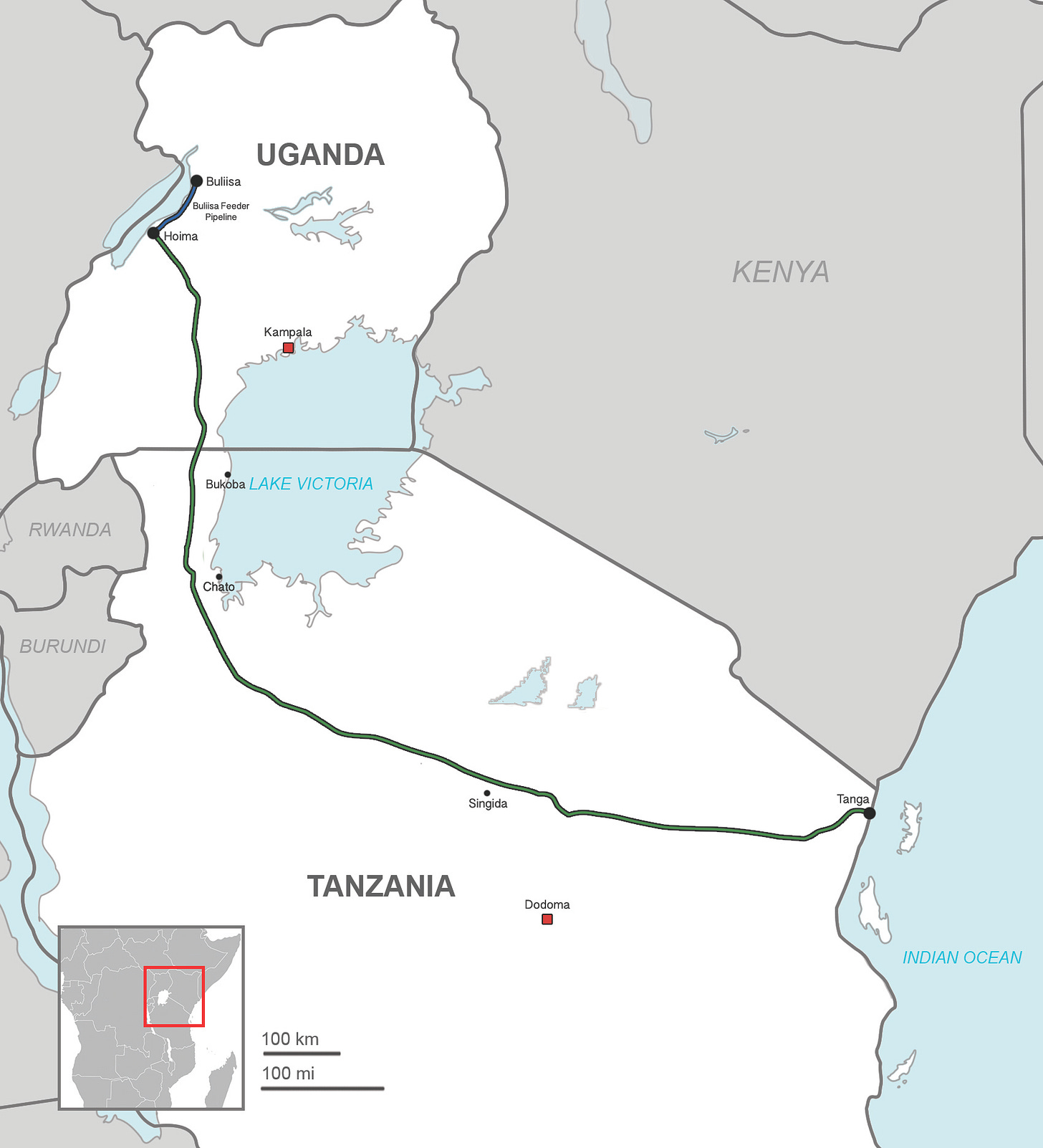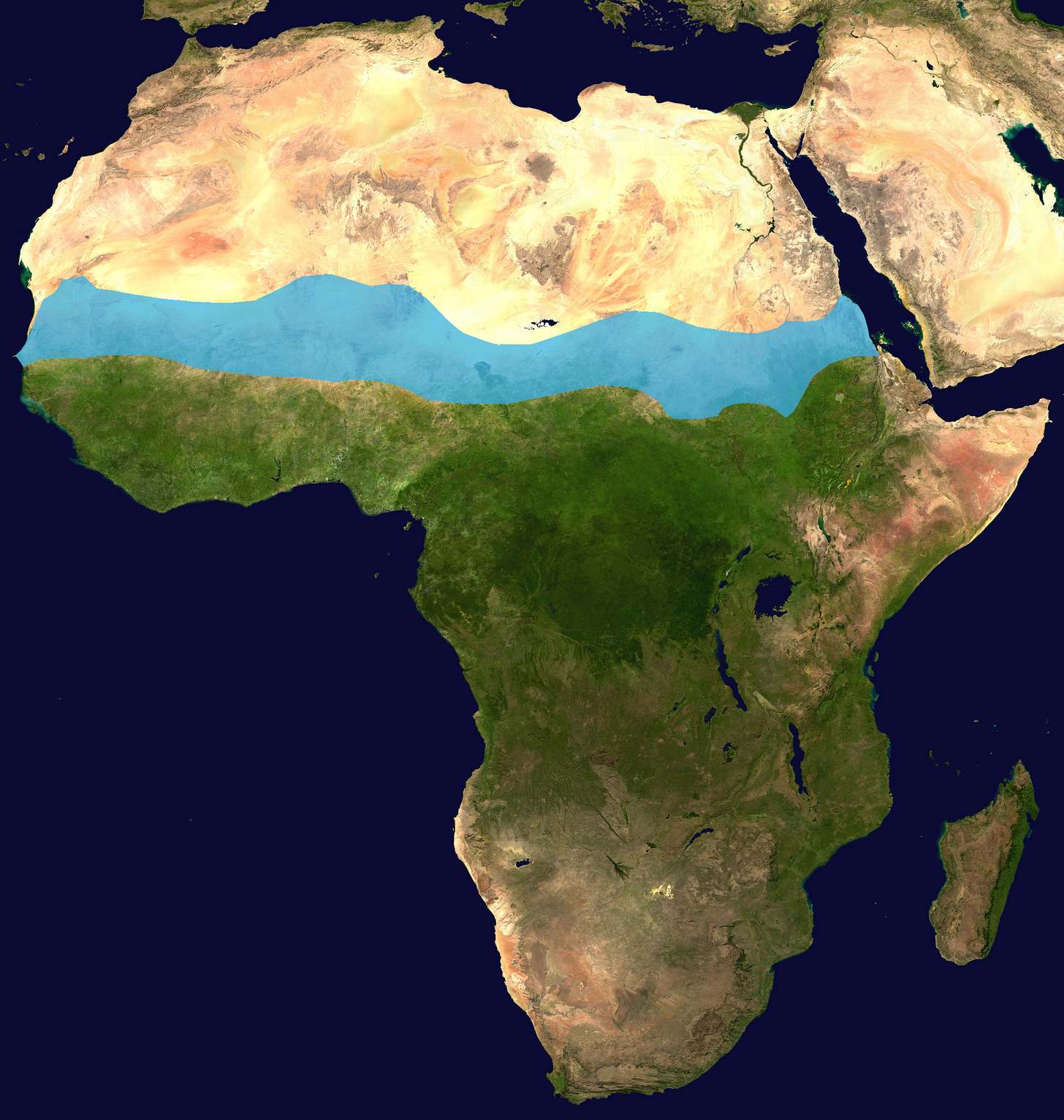
Good morning from… Can you guess where in Africa this is? (Answer at the bottom!)
Spain’s Secret Sauce: Immigrants Power Its Booming Economy

Inside a gigantic factory in north-eastern Spain, thousands of jamón legs dangle on conveyor belts while employees from 62 countries keep the BonÀrea food empire running smoothly. With foreign workers making up 40% of its 5,000-strong staff, BonÀrea reflects a growing national trend: immigrants fueling an economic boom that has Spain outpacing the entire eurozone (and even the US!) in growth projections.
Spain is cheerfully embracing newcomers: While some developed nations are huffing and puffing about shutting borders, a staggering 1.1 million people arrived in the country in 2022, according to the Bank of Spain—enough to sustain a social security system that might otherwise buckle under an aging population. Immigrants grabbed about 85% of new jobs last year, propping up farming, construction, and service sectors.
Sure, Spain has its fair share of anti-migrant voices. But foreigners aren’t budging: you’ll find a Moroccan electrician who arrived at 16 hidden on a truck, Latin American newcomers recruited directly for factory gigs, and Eastern Europeans lured by stable paychecks. Even the Socialist government of Prime Minister Pedro Sánchez is doubling down—he’s not only forging deals to channel African workers through legal routes, but he’s also planning to give work permits and papers to nearly a million undocumented residents over the next few years.
With the Bank of Spain predicting the country will need a jaw-dropping 30 million working-age immigrants in three decades, it’s safe to say Spain’s future growth—hammy or otherwise—will keep leaning heavily on its open-arms approach. ¡Olé!
The Place That is Ground Zero for Climate Politics in the World
For about 88 miles, bulldozers have carved a path through Uganda’s rolling farmland and dusty countryside. Schoolkids walk past half-finished pipeline segments on their way to class, and local pastors preach about possible oil jobs. It’s all part of the world’s most controversial oil pipeline, the East African Crude Oil Pipeline (EACOP) – or, more accurately, the part of it that actually got built before money troubles and activist pressure put the brakes on the rest.
Uganda once dreamed it’d be pumping oil by now, selling black gold abroad and turbo-charging its economy. Instead, this project has turned into a scuffle pitting multinational banks, governments, and climate activists against Uganda’s equally passionate officials. Everyone’s wielding moral arguments about either saving the planet or helping the poorest find that elusive “economic opportunity.” No wonder some experts call Uganda “ground zero for climate politics in the world.”
Despite the pipeline being months (or years) behind schedule, Uganda and its oil partners – France’s TotalEnergies and China’s CNOOC – vow to push ahead. Western banks have mostly fled, saying, “Thanks, but no thanks,” after a global activist campaign called StopEACOP hammered them with banners, Zoom calls, and papal endorsements. Undeterred, Ugandan officials are courting financiers in China and the Middle East, conveniently far removed from the picket lines in London or New York.
Uganda also rails at the West for doomsday climate sermons while Europeans still run on fossil fuels themselves. “We might pollute, sure, but look at your big factories and highways,” Ugandan officials say, basically telling Western critics, “You first.” Another official, Joseph Kobusheshe, sums it up: “They won’t finance our pipeline, but they’ll sure buy our oil once we pump it.”
Drive into Kyarushesha, a sleepy village near the feeder pipeline, and you’ll see brand-new hotels, a budding pharmacy, and random flatbed trucks hauling 24-inch steel pipe sections – all for a pipeline that’s incomplete. The locals are left guessing: Is this pipeline a ticket to prosperity or an environmental time bomb? For guys like Kyarushesha’s community leader, “We can’t see the full picture yet. Maybe it’s a windfall for us; maybe we’ll lose what little we have.”
Whether EACOP stumbles or eventually chugs forward, it’s rewriting the blueprint for how new fossil fuel projects meet (or ignore) global climate demands. Rallies, lawsuits, papal interventions – it’s all happening. If they do find that financing from the Middle East or Asia, we may see an oil line 900+ miles long, heated by electricity, snaking from Lake Albert to the Indian Ocean, fueling debates for decades to come.
The Sahel: More ‘Terror Deaths’ Than the Rest of the World Combined
They call it the Sahel: a massive swath of semi-desert just south of the Sahara, stretching from the Atlantic in West Africa to the Red Sea coast. For a place that rarely features in anyone’s top-ten travel list, it’s been making headlines for all the wrong reasons: that is, a spike in terror attacks big enough to overshadow the rest of the planet. According to the newly released Global Terrorism Index (GTI), more than half of the world’s “terror-related” deaths in 2024 happened right there in that dusty belt.
The GTI claims that groups like the Islamic State (Sahel) or JNIM (linked to al-Qaeda) have created entire mini-states, even collecting taxes. They’re seizing territory and even imposing their own brand of “justice.” And in a region famously nicknamed “the coup belt,” there’s no shortage of new regimes for them to pick on.
Indeed, each time a country like Mali, Burkina Faso, and Niger (among others) sees the old guard booted out and a new military strongman taking charge, extremist groups rub their hands with glee. Because guess who’s busy figuring out how to run a country instead of hunting down terrorists?
So what keeps these insurgents flush with cash and bullets? The Sahel is flush with contraband, including drugs and artisanal gold. And so, whether they’re kidnapping travelers for ransom or slapping taxes on smugglers, jihadists in the Sahel have no shortage of creative fundraising opportunities. Plus, with local governments frequently AWOL from large rural areas, these guys can build up loyalty among impoverished communities who see them as the only reliable authority around.
As a result, their influence has been growing, even creeping into neighboring coastal states such as Benin and Togo.
So, What’s Next?
If the generals in power across the Sahel are scrambling for solutions, they haven’t found them yet. In the meantime, jihadist factions see a golden opportunity to dig roots and expand. So unless strong governance steps in, the Sahel’s grim distinction as the “epicenter of global terrorism” might be sticking around for a while.
Food for Thought
“You will not be beaten when you think before acting.”
— Kenya Proverb
And the Answer is…
The photo is from Eswatini! Did you guess right?
You can also send in your own photos of Africa, alongside the location, and we’ll do our best to feature them.





Insightful